BIP Roberts - Better In Person Donation
Our Commitment(s) for your generous contributions:
Better in Person Inc (nonprofit) and Better in Person Enterprises LLC (for-profit), founded by retired MLB baseball player Leon “Bip” Roberts. The name emanates from BIP, but better in person says it all. We believe in all we do locally by interacting at the grassroots level in our local communities. And we can only do this by community outreach and learning the needs of our communities.
With clarity and happiness, on the micro level, youth become more productive members of society with less childhood trauma and more family unity, and at the macro level, community cohesiveness and pride.
Sports and music have decades of data showing their importance in the development of children and youth. These recreational activities are great outlets highlighting dexterity, leadership, teamwork, exhilaration, and energy. All the things that make us feel alive and worthy. Imagine with music and sports, you find fun ways for youth to learn S.T.E.M education. For all counties in which BIP has a presence, we will seek water for our S.T.E.M education. We enroll youth ages 12-18 in boat making teams where they learn to make boats sponsored by local businesses over an 8-week spring/summer course and then race those boats at the end of the session.
A. Music
The benefits of music are endless and play a key role in the development of youth. Benefits Include:
Develop spatial intelligence.
Build imagination and intelligence.
Mood booster
Boost confidence
Sports have some of the same overlapping benefits as music. However, sports also have some unique benefits of its own:
Physical and mental health
Academic performance
Bone density
Create lifelong friendships
Coaches as role models to provide guidance
C. Financial Sustainability
BIP focuses
on underserved populations in the California counties of Alameda, Colusa, Contra
Costa, Fresno, Glenn, Lake, Los Angeles, Marin, Mendocino, Napa Orange,
Riverside, Sacramento, San Bernardino, San Diego, San Francisco, Solano,
Sonoma, and Yuba. To support the development and implementation of these
programs, the organization is obtaining fee-for-service (FFS) contracts with
both Medi-Cal and Medicare insurance payors. These contracts will begin in
January 2025.
Although our nonprofit organization will receive grants through our nonprofit activities and contracts as well as MOU collaborations, our business model centers on FFS
contracts for financial sustainability. The chart below depicts the
percentage contribution to income.
D. BIP “CalAIM” Services
Our program addresses whole person care, utilizing the “CalAIM” (California Advancing and Innovating Medi-Cal) Initiative throughout the state of California, addressing health and wellness through a fee-for-service model that is sustainable. BIP aligns with the State of California through contracting with insurance agencies, to allow payment for services provided. Services provided by Better in Person under this initiative include:
- People with significant behavioral health needs, including people with mental illness, serious emotional disturbance, or substance use disorder.
- Seniors and people living with disabilities.
- People experiencing homelessness and have complex physical or behavioral health needs.
- People transitioning from jail or prison back to the community who also have complex physical or behavioral health needs.
- Children with complex medical conditions, such as cancer, epilepsy, or congenital heart disease
- Children and youth are in foster care.
E. Enhanced Care Management – ECM
ECM provides a high-touch care coordinator for Medi-Cal managed care enrollees with multiple complex needs. If successfully implemented, this benefit would ensure that enrollees with complex needs are identified and engaged by someone who understands their goals, develops a plan in partnership with them and their providers, and actively connects them with the clinical and nonclinical services and resources that help them meet those goals.
The Care Plan can establish assisting clients with therapeutic services, as well as necessary interventions for drug and alcohol out or in-patient care, job placement and work development skills and training, assisting with scheduling and keeping medical/dental and vision appointments, and assisting with general paperwork to ensure client has access to all benefits available to them.
CHW’s (Community Health Workers) assigned to assist clients throughout their care plan, and help close gaps otherwise missed, by health facilities.
Our plan is to offer wrap-around services to the youth in our communities. When a child is having difficulty in school, behavioral problems are often due to issues at
home. We would start with mental health and social services with our CHW’s and
licensed professionals in the schools, and then offer services to family
members at home as well as when the need is identified.
F. Community Supports
Community Supports (or “In Lieu of Services”). Medi-Cal’s coverage may be comprehensive when it comes to health care services like doctor’s visits, hospital or nursing home stays, or medications and equipment. There are, however, situations where traditional health care services on their own are not enough to support well-being. For example, a person experiencing homelessness who is diagnosed with cancer may not be able to tolerate chemotherapy if they do not have a safe place to stay, rest, and recover from treatment. Traditionally, Medi-Cal has not covered that safe place to recuperate, instead only covering a nursing home or hospital, which is more than what is needed. In response, DHCS is proposing to give managed care plans the option to substitute new clinical and nonclinical services for traditionally covered services like care in a nursing home or hospital. This would give managed care plans the financial flexibility to meet the needs of members in new, more patient-focused ways.
G. Housing Support
- Housing transition navigation services (e.g., assistance applying for and finding housing, signing a lease, securing resources for setup, utilities, moving in)
- Housing deposits – members find a home that is within their monthly budget to sustain but do not have the deposits to move in. We provide this service so that this is not a barrier to housing.
- Housing tenancy and sustaining services (e.g., early intervention around behaviors that might jeopardize housing, dispute resolution with landlords and neighbors, recertification support). This service also supports the working poor and seniors on a budget, which are a significant percentage of the addition to California’s 27% of the U.S. homeless population.
H. Short-term Recovery Support
- Recuperative care (medical
respite): up to 90 days
- Short-term, post hospitalization
housing: up to six months
- Respite services for caregivers (such as those caring for people with dementia or children with disabilities) who need short-term relief.
I. Independent Living Support
- Day habilitation programs (e.g., training on independent living skills like cooking, cleaning, and shopping)
- Nursing facility transition/diversion to assisted living facilities, such as residential care facilities for the elderly and adult residential facilities.
- Community transition services / nursing facility transition to a home
- Personal care and homemaker services
- Environmental accessibility adaptations (home modifications)
- Medically tailored meals/medically supportive food
- Pre-release/in-reach cares for people incarcerated or were recently incarcerated.
People who are incarcerated are much more likely to be living with chronic illness and/or behavioral health conditions like mental illness and substance use disorder, compared to people who are not incarcerated. Federal law prohibits Medi-Cal coverage for people while they are incarcerated. Instead, the jail or prison health service delivers and finances most care in facilities. However, people transitioning from incarceration face increased risk of adverse health events, including death. Research shows former prisoners are 129 times more likely than the general public to die of a drug-involved overdose in the two weeks after release, and are also at higher risk for suicide after release.
Our program has a holistic approach to “meeting people where they are” and working with them to bring them to “where they want to be.” We assist with housing, day habilitation programs, job placement and mental health. Working with other CBO’s (Community Based Organizations) we have kept two thousand people from recidivating in the past 4 years.
There are key factors needed to make a program like this work
- Locations to house the underserved (i.e., hotels, apartment complexes)
- MOUs with hospital clinics and other community-based organizations
- HIE programs that will allow transparency and closed loop systems.
- Vocational training programs such as the Lime Foundation
- Location for In-patient rehab facility
- Contracting and credentialing within each location serviced
- Boots on the ground office location to serve the population
- Employees and growth in employment force as program grows
J. Testimonial (7 Hours in LA)
While in Los Angeles, we were approached and requested to assist a family of 7 who were homeless and living in their car. The person who requested we help them had
just witnessed the car crash, and the parent (mom and dad) placed blankets on
the ground for their five children, ages 3, 4, 5, 6 and 8 years old.
The woman allowed us to speak to the matriarch of the family and she gave us verbal permission to try to help them find shelter. She did a 3-way call with us to her insurance company and did a verbal ROI (Release of Information) to allow us to work with them to accomplish this task.
In speaking with the mother, we learned that she had a bachelor’s degree, and had once worked at a college, but during COVID 19, her position was dissolved, and she lost the condo she had been renting for her family.
Grace K., Edward M., Karen R. and Michelle B, with her insurance company, internally requested for assistance and sent out emails to Step Up and 211.
Step Up replied by email that they do not have hotel vouchers, and cannot help without
getting an outreach done, and authorization through the insurance for payment first. Meantime, we are doing the outreach because it is the right thing to do regardless of a contracted rate or expected payment. They referred us to 211, to request help.
We contacted LA County at 213-629-1227 x 347, and I spoke to Joe at that number. Joe
informed me that they only have a program for single men or single women with children, but not combined families. He then referred me to Union Rescue Mission, at
213-347-6300 and told me to ask for Chaplain Tyler. I called this number and left multiple voice mails for assistance. Starting with a voice mail to VP of Media Services, Kitty Davis-Walker, 213-673-4585. Another woman by the name of Latonja, phone number 626-993-5578, called me back on Friday at 4pm, and said they have room for all seven in the family. She would emailed me the application and our CBO returned it promptly.
In the meantime, we reached out to 211, and spoke to a gentleman who originally told us that they do not have hotel vouchers either, and cannot help with placement. After talking for a while, he remembered that they just received alternative funding that might allow them to get the clients a room at a hotel. He called back within the hour and confirmed that they had been able to access the alternative funding and supply a hotel room from that Friday, the date this began, through Thursday morning, but after that we would need alternative resources for the family.
At this point we are ecstatic, the family is off the street, they are in a hotel, the
application will be expedited, and the family should be in the housing Angeles First,
through the Union Rescue Mission before the kids ever must sleep on the street.
On Monday, I received an email from the Union Rescue Mission stating that the family was on the waiting list. Kenya Hall initiated the outreach, with their group, and her contact number is 310-436-2466. Later on, this same day, October 18, 2023, we received a call from Kenya Hall, who informed us that she had secured housing for the family of seven through the Angeles Program. They were picked up at 2 pm that day.
In 7 hours, we placed a family of 7, as a family unit, into housing, they had beds for the first time in 2 years. They were receiving wrap around support for the first time in 2 years, the kids enrolled in school for the first time in two years, and mom got the drug rehab she so desperately needed.
Mom now works for Kaiser. She is happy and looking for permanent housing for her family. If we can do this in 7 hours, imagine what we can do in six months!


